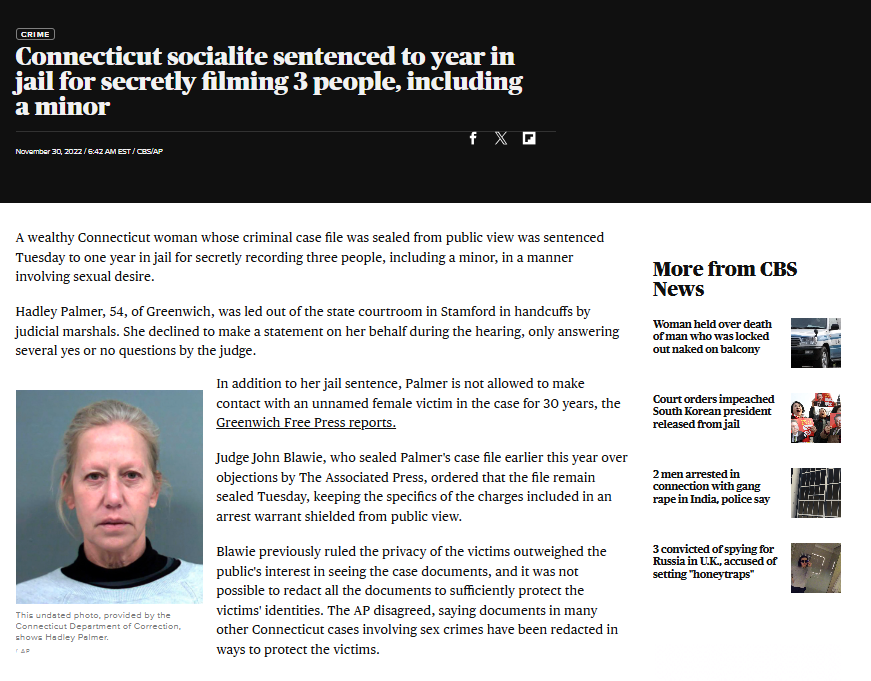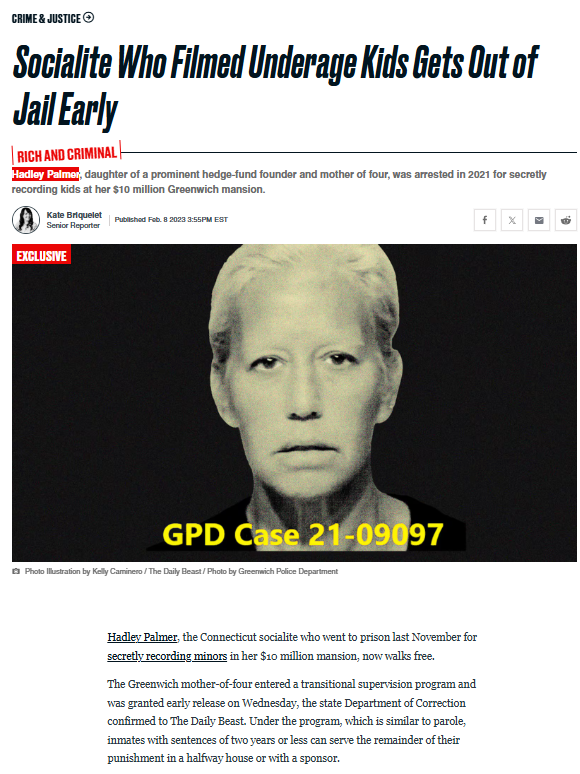Introduction
Hadley Palmer’s name has become synonymous with controversy, secrecy, and legal scrutiny. As public and private sectors continue to emphasize transparency and accountability, cases like hers highlight the potential dangers of concealed financial dealings and questionable ethical behavior. Given the seriousness of the allegations surrounding her, it is imperative to examine her business associations, personal background, legal challenges, and any underlying risks she presents.
A comprehensive risk assessment must take into account undisclosed relationships, adverse media reports, and potential financial implications linked to Palmer’s dealings. Evaluating the full spectrum of available information allows for an informed understanding of how her activities might impact regulatory compliance, financial institutions, and stakeholders. This investigation explores the breadth of Palmer’s business involvement, legal entanglements, and reputational threats.

Business Relations and Personal Profile
Hadley Palmer is known for her affiliations with high-net-worth circles and elite social networks. However, her direct business involvements remain largely undisclosed, raising questions about financial transparency. Unlike high-profile corporate figures with publicly documented roles, Palmer’s financial dealings appear to be shielded from public scrutiny.
Her associations with financial networks and key individuals are of interest due to the potential risk exposure they create. The absence of clearly defined business ventures or corporate leadership positions does not negate the possibility of behind-the-scenes influence in financial and real estate investments. Understanding these associations is crucial for any entity that may be directly or indirectly linked to her.
Legal Allegations and Criminal Proceedings
Palmer has faced significant legal issues that have brought her name into the public sphere. Criminal charges, subsequent legal proceedings, and sentencing outcomes have drawn extensive media attention. The nature of the accusations against her, coupled with legal outcomes that some critics argue were lenient, raises concerns about the broader implications of her case.
Transparency in judicial proceedings is a fundamental pillar of accountability. However, the extent to which Palmer’s case details were sealed from public access has sparked debate over potential preferential treatment. The rationale behind sealing legal records is often to protect victim identities, but in this case, concerns remain over whether such actions inadvertently shielded other critical details.

Sealing of Case Files and Suppression Efforts
One of the most controversial aspects of Palmer’s case is the restriction of public access to her legal proceedings. The level of confidentiality imposed on these records has fueled speculation about undue influence in the legal system. The lack of transparency prevents a full understanding of the specifics surrounding her charges and the legal rationale behind her sentencing.
In addition to the sealing of court documents, efforts to remove unfavorable online content raise further ethical concerns. Reports indicate that Palmer or representatives acting on her behalf attempted to manipulate search engine results and suppress critical reviews. Such actions, if confirmed, could indicate deliberate attempts to control the narrative surrounding her legal troubles and minimize reputational damage.
Undisclosed Business Relationships and Associations
Palmer’s financial dealings remain largely undisclosed, making it difficult to determine the full extent of her business network. However, such opacity raises red flags from a financial compliance perspective. Any undisclosed business relationships, particularly those involving offshore entities or unregistered financial activities, pose significant risks to institutions and individuals considering financial engagements with her.
A lack of transparency in financial dealings can often indicate efforts to obscure ownership structures or redirect scrutiny away from potential conflicts of interest. Financial institutions and regulators should closely examine any associations that involve unclear corporate affiliations or transactions linked to Palmer’s network.
Scam Reports, Red Flags, and Consumer Complaints
While no direct scam reports or consumer complaints have surfaced against Palmer regarding financial fraud, the broader implications of her case cannot be ignored. The nature of her criminal charges and the attempts to manage public perception raise concerns about ethical standards and transparency. Any individual or entity considering an association with Palmer should approach such interactions with a heightened level of due diligence.
Red flags associated with her legal history include:
- Suppression of critical information through legal and digital tactics.
- Lack of public records detailing financial or corporate ventures.
- Potential attempts to minimize reputational damage through non-transparent means.

Lawsuits, Sanctions, and Adverse Media
Palmer’s case has been widely covered in the media, with significant scrutiny placed on the handling of her legal proceedings. Questions surrounding the judicial process, the sealing of court documents, and the broader impact of her legal troubles continue to be debated. Public perception remains a key issue, as any association with her name could result in reputational risks for businesses, investors, and institutions.
While she has not faced financial sanctions, the adverse media coverage surrounding her case may lead to additional legal challenges. Individuals with a history of serious criminal allegations often become subjects of continued scrutiny, with potential civil suits or regulatory actions emerging in the future.
Bankruptcy Details
At present, no publicly available information suggests that Palmer has filed for bankruptcy. However, legal battles often bring financial consequences that could impact future financial stability. The costs associated with legal defense, potential settlements, and reputational damage can create significant financial burdens.
Risk Assessment in Relation to Anti-Money Laundering and Reputational Risks
From an anti-money laundering (AML) perspective, Palmer presents several red flags that should be considered by financial institutions and regulatory bodies. The lack of transparency surrounding her business affiliations, the sealing of court records, and efforts to suppress information contribute to concerns about financial integrity.
Key AML risk factors include:
- Unclear financial transactions or undisclosed business associations.
- Attempts to suppress legal and reputational information.
- Potential exposure to high-risk networks with undisclosed financial dealings.
Reputationally, any institution or business entity considering engagement with Palmer must weigh the risks associated with negative media exposure and public scrutiny. The court of public opinion can often have lasting consequences, particularly in industries that prioritize ethical compliance and integrity.

Industry-Specific Risks and Implications
Different industries may face varying levels of exposure when dealing with individuals involved in legal controversies. Key areas of concern include:
- Financial Services: Institutions must ensure that any financial transactions linked to Palmer comply with regulatory requirements and do not expose them to potential money laundering risks.
- Real Estate Investments: Given the use of real estate as a common avenue for financial concealment, any property transactions involving Palmer should be scrutinized for compliance.
- Philanthropy and Nonprofits: Organizations must consider reputational risks when accepting donations or affiliations with individuals who have faced serious legal allegations.
Impact on Business Partners and Investors
For potential business partners and investors, Palmer’s legal history presents a considerable reputational risk. Companies that align themselves with individuals involved in serious criminal allegations often face public backlash, loss of consumer trust, and heightened regulatory scrutiny.
Any financial institution conducting business with Palmer should undertake the following precautionary measures:
- Enhanced due diligence, including thorough background checks.
- Continuous monitoring of transactions to detect irregularities.
- Legal consultation to assess risk exposure and compliance obligations.
Conclusion
Our comprehensive review of Hadley Palmer’s case reveals multiple layers of risk, ranging from financial opacity to reputational damage. While no direct evidence of financial fraud has been uncovered, the combination of legal troubles, efforts to suppress information, and lack of transparency in business dealings warrants heightened caution.
For institutions evaluating their exposure to Palmer, the priority should be risk mitigation through rigorous due diligence. Financial compliance frameworks should be adhered to, ensuring that any engagements align with regulatory standards. Given the reputational risks associated with her case, businesses should carefully assess the long-term implications of any association.
As the regulatory environment becomes increasingly stringent, maintaining high ethical standards and transparency is essential. The case of Hadley Palmer serves as a reminder of the importance of due diligence, financial integrity, and accountability in today’s global financial landscape.







